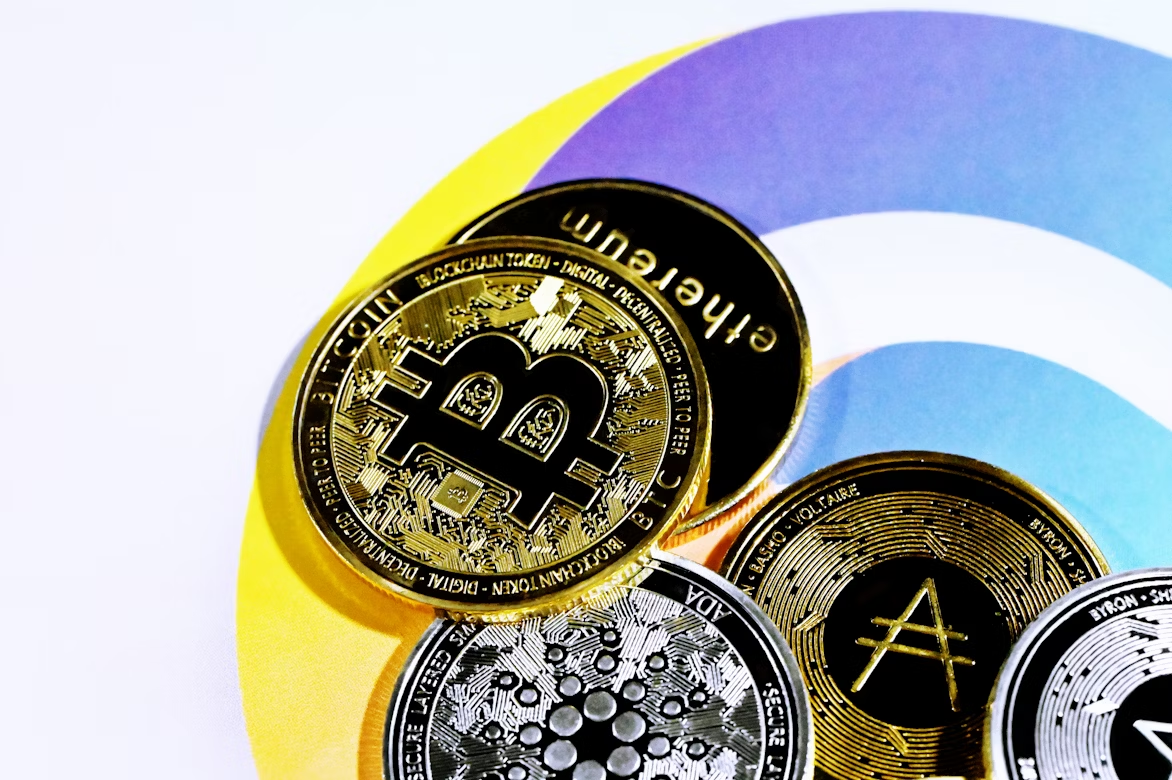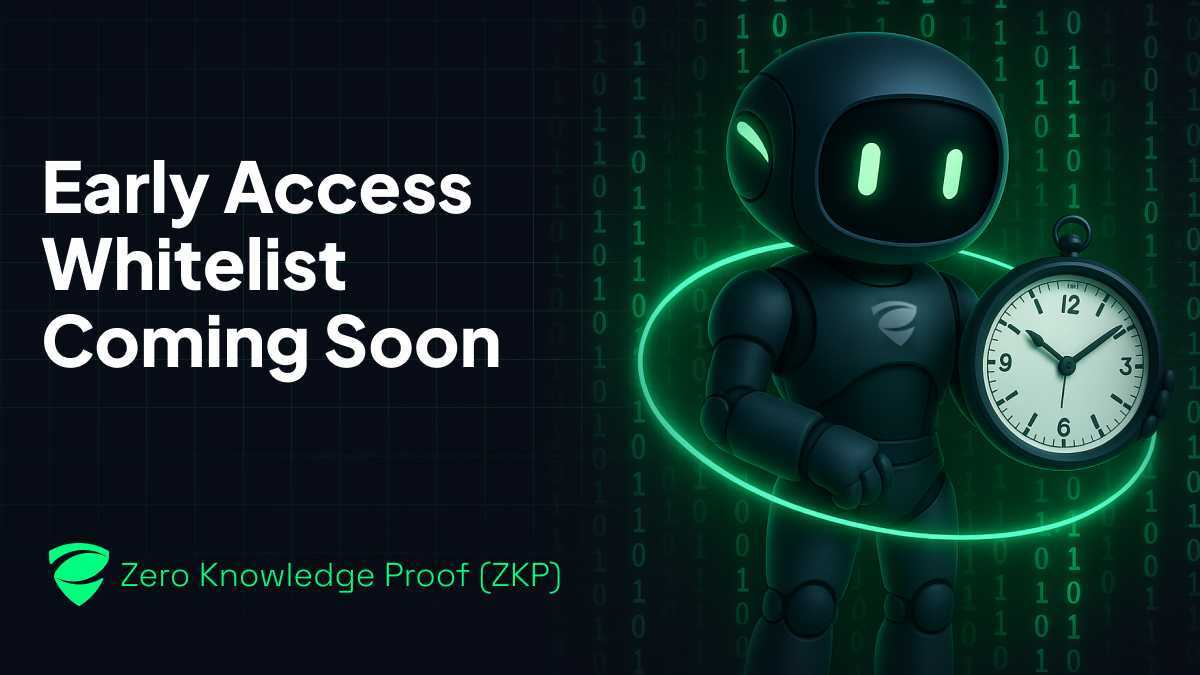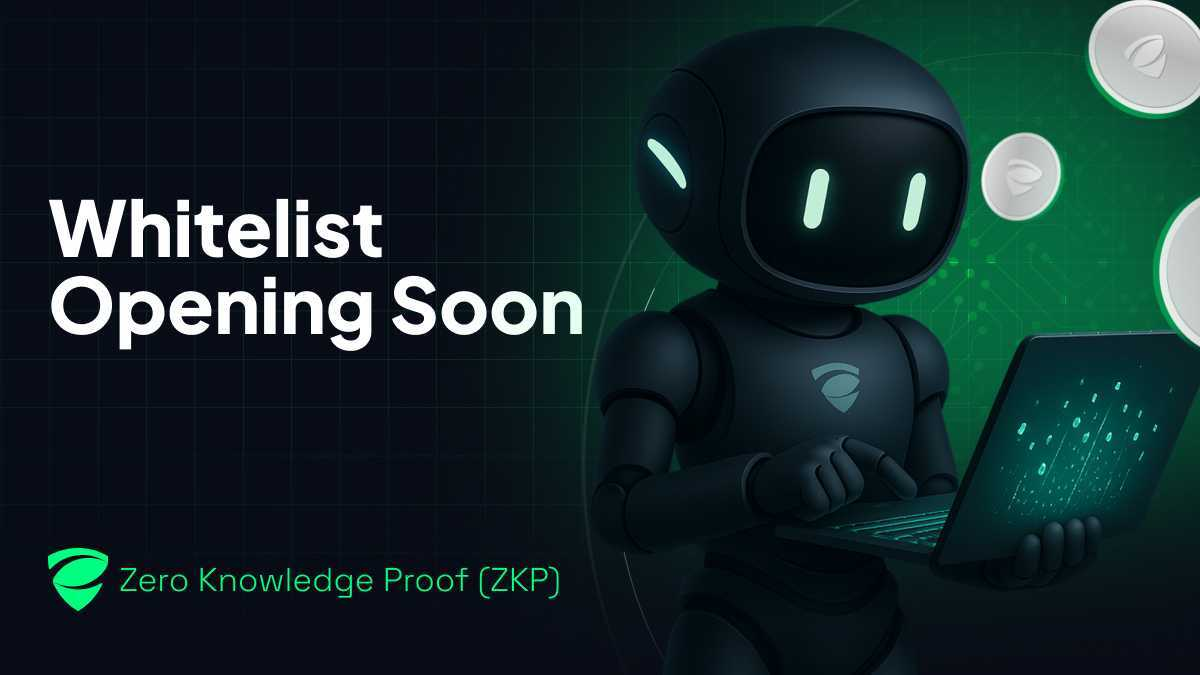Every bull run in crypto is driven by a story — a narrative that redefines what’s possible and attracts capital, innovation, and adoption.
In 2017, it was smart contracts.
In 2020, it was DeFi.
In 2023, it was AI and crypto convergence.
Now, in 2025, the next narrative is taking shape: Proof.
More specifically, Zero Knowledge Proof (ZKP) — the technology that makes transactions both private and scalable while reducing costs to near zero.
It’s not just another technical layer; it’s the foundation for the next phase of blockchain growth, turning blockchains into global, privacy-preserving financial systems. And the project pioneering this Proof Narrative — with its whitelist opening soon — is already being called the Top Crypto Presale by early analysts and investors watching the next wave of innovation form.
From Transparency to Proof
Blockchain’s original promise was transparency — an open ledger anyone could audit. That model worked for trust, but it failed for privacy and scale.
Enter Zero Knowledge Proof, the cryptographic leap that allows one party to prove a statement is true without revealing the underlying information.
In practice, it means you can:
- Prove a transaction is valid without showing who sent it or how much.
- Prove an exchange holds reserves without exposing customer wallets.
- Prove regulatory compliance without revealing user data.
This flips blockchain’s structure from “show everything to everyone” to “prove only what’s necessary.”
That shift is so powerful that it’s already being compared to the introduction of smart contracts on Ethereum — the leap that defined the last generation of crypto architecture.
The End of the Trade-Off
For years, the blockchain world faced a cruel choice: be scalable or be private.
Fast networks like Solana and Avalanche gave up privacy for speed. Privacy-focused coins like Monero and Zcash stayed slow and niche.
Zero Knowledge Proof finally ends that trade-off.
With zk-rollups, zkEVMs, and recursive proofs, entire batches of transactions can be processed and verified as a single mathematical proof. This means:
- Thousands of transactions per second.
- Near-zero fees.
- Full cryptographic privacy.
It’s the best of both worlds — global scalability and personal confidentiality, united by math instead of compromise.

And now, one project is taking that principle further, building the infrastructure to make ZKP the standard for all of Web3. With its whitelist opening soon, it’s positioned as the Top Crypto Presale for investors betting on the Proof Economy.
The Project Powering the Proof Economy
This upcoming ZKP-driven project isn’t a single chain — it’s a Proof Layer for the entire blockchain ecosystem.
It introduces a modular infrastructure that allows any blockchain or dApp to plug in Zero Knowledge verification without rebuilding their architecture.
Core components include:
- Universal Proof Engine: Generates fast, recursive proofs compatible with multiple frameworks (PLONK, STARK, Halo2).
- Cross-Chain Verifier Network: Lets blockchains confirm each other’s state without bridges or wrapped assets.
- Privacy SDKs: Developer tools for embedding ZK-powered privacy and scalability directly into apps.
- Proof Marketplace: A decentralized exchange where proofs become tradeable assets.
In this ecosystem, proofs themselves become value — the core resource powering scalable, private computation.
That’s why early-stage investors and institutional analysts are calling this the Top Crypto Presale — not because it’s another speculative token, but because it’s the plumbing of the next blockchain era.
The Economics of Proof
Every major blockchain era created a new economic primitive:
- Bitcoin monetized energy through Proof of Work.
- Ethereum monetized capital through Proof of Stake.
- Now, Zero Knowledge Proof monetizes verification — turning mathematical truth into a financial resource.
In this model, participants called provers generate and verify proofs, earning tokens for securing the network. dApps and blockchains pay for verification services, creating constant demand for computation and validation.
It’s a circular economy of trust and scalability, not speculation — and it’s already being tested by DeFi protocols, enterprise auditors, and even AI systems that need verifiable computation.
This shift toward “Proof as Value” could define the next trillion-dollar narrative, much like yield farming or NFT minting did in past cycles.
Why Proof Is the Next Big Narrative
DeFi unlocked liquidity. AI tokens promised intelligence. But Proof unlocks everything — privacy, compliance, scalability, and cross-chain trust.
It’s not a trend; it’s infrastructure.
Just as Ethereum’s smart contracts created the last crypto supercycle, ZKP’s Proof Layer will create the next — a framework that enables decentralized systems to operate globally, securely, and efficiently.
This project’s whitelist — opening soon — offers early entry into that infrastructure. Participants will gain discounted allocations, validator staking rights, and governance privileges within the emerging Proof Economy.
That’s why, across analyst reports and investor circles, it’s being called the Top Crypto Presale to watch — the one sitting at the heart of the narrative that will define 2025.
The Story That Builds Itself
In crypto, the biggest winners always come from the biggest ideas.
Zero Knowledge Proof isn’t a passing narrative — it’s the story that validates everything else. It’s how DeFi becomes private, how institutions join safely, and how blockchains scale to billions of users.
The project leading this transformation — with its whitelist on the horizon — isn’t just another network. It’s the Proof Layer of Web3, the invisible infrastructure turning trust into mathematics and math into money.
In a world chasing hype cycles, this one builds fundamentals.
In a market chasing trends, this one defines them.
That’s why it’s the Top Crypto Presale — not just of 2025, but of the next era of blockchain itself.
Disclaimer: This media platform provides the content of this article on an "as-is" basis, without any warranties or representations of any kind, express or implied. We assume no responsibility for any inaccuracies, errors, or omissions. We do not assume any responsibility or liability for the accuracy, content, images, videos, licenses, completeness, legality, or reliability of the information presented herein. Any concerns, complaints, or copyright issues related to this article should be directed to the content provider mentioned above.







